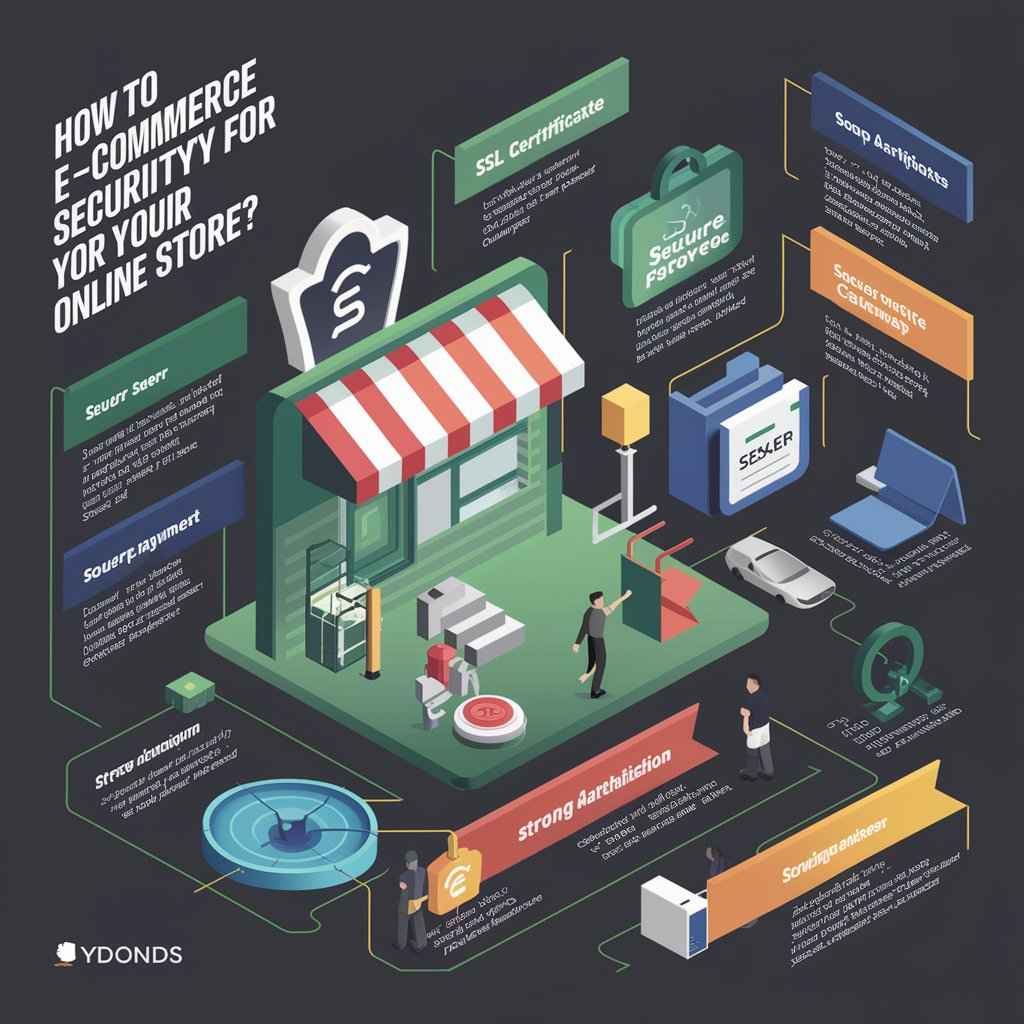Of course, everybody wants their website to be safe, but e-commerce sites that handle customer money and personal information should prioritize security even more. The good thing is that e-commerce security safeguards are integrated into platforms. To safeguard your store & consumers, you need to take additional precautions in addition to the absolute minimum. For example, you can bolster your login processes, add tools to combat spam, begin setting up malware screening, and maybe get some professional help from shopify partners Stockport, that’s if you’re using Shopify as your e-commerce store. We’ll talk about the necessity for increased security for e-commerce websites in this piece. Next, we’ll provide an extensive e-commerce security checklist to safeguard internet-based enterprises.
The Top Strategies to Increase E-Commerce Security
The following are some steps that can be taken to safeguard an online store by creating a reliable consumer authentication:
Make use of HTTPS
Websites that persist in using the outdated HTTP protocol risk negative consequences and dangers to their safety online since HTTPS has emerged as the industry norm for online security. Additionally, in the past, companies exclusively used HTTPS for their payment channels which handled private data. Nevertheless, owners of e-commerce stores are migrating their entire websites to HTTPS due to the increasing security risks associated with passwords in the present era. It guarantees the security of all other pages of their website in addition to their payment sections. Furthermore, site security involves not just securing payment information but also your customers’ data.
Avoid storing credit card information.
Make sure you never preserve credit card information online to protect your e-commerce store from all online hazards and weaknesses. Because e-commerce payments are handled by outside providers, there is occasionally a serious risk to your business’s as well as your customers’ credit card information.
Maintain the security of your admin dashboard.
Hackers can access your eCommerce website in some methods, but getting to the Admin Side may be the easiest. Hackers simply need a single, easy-to-guess password to start snooping through your admin panel, obtaining the data they need, and even shutting you off of your website. An excessive number of website owners neglect to secure their admin dashboard login credentials, merely using “admin” as the username & “password” as the passcode. Consequently, they become unprepared if somebody manages to enter their admin panel. The standard login for eCommerce sites is Admin, and lots of vendors are so busy getting things going that they forget to change it.
Run virus analyses
Malware makes up one of the most common threats to e-commerce security, as was previously stated. It’s particularly challenging to stop because malware may invade your website via a variety of techniques, such as SQL injections. Thankfully, you may lower the dangers by installing a powerful vulnerability scanner or specialized malware scanner.
Select a safe payment gateway.
A payment gateway is necessary for every website that takes online payments to process and approve online transactions. Additionally, a top-notch payment gateway will provide excellent security measures to help reassure your clients. Examine the way every payment gateway manages private data, such as credit card numbers, before selecting one.
Make a copy of the database at all times.
Finding out that your private data was compromised due to a hack on your eCommerce store website is rarely a pleasant experience. Knowing that a person has been looking around your website is unsettling, yet the fact that you are unsure of what they were doing is much more unsettling. Attackers can do anything from copying your data to more seriously ruining it by preventing you from ever using it again.
Continually run PCI scans.
By using proactive security inspection, or PCI, you can find issues before they’ve cost you money and clients. No matter how well-known the host is for your eCommerce website, you must nevertheless perform regular PCI scans. Such scans identify threats and weaknesses that could expose your online store to malware and virus attacks, as well as data breaches.
Pay close attention to your e-commerce website.
Maintaining site secrecy requires constant monitoring of your eCommerce store to spot any odd activities. Yes, you can program backups & routers to ensure the security of your website, but there’s much more to security trust which you need to be conscious of.
Final Words
In as much as safety is of paramount importance, it will always be possible for one to ensure that the online store is safe from fraudsters without much struggle. Recall the recommendations given above and make sure your company and the data of your clients are protected from intrusions.
Suggested Reads:
Insight Into The Reality of Human Gathering Fake
Enhancing Educational Technology With Conroe ISD SSO








